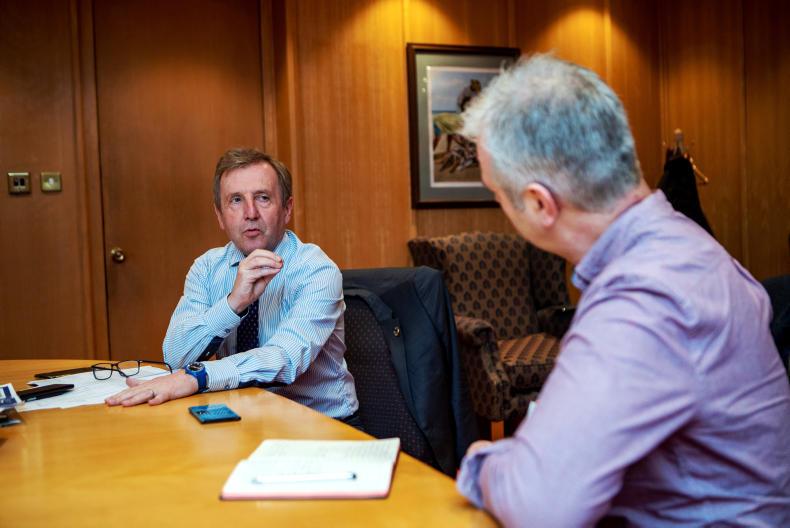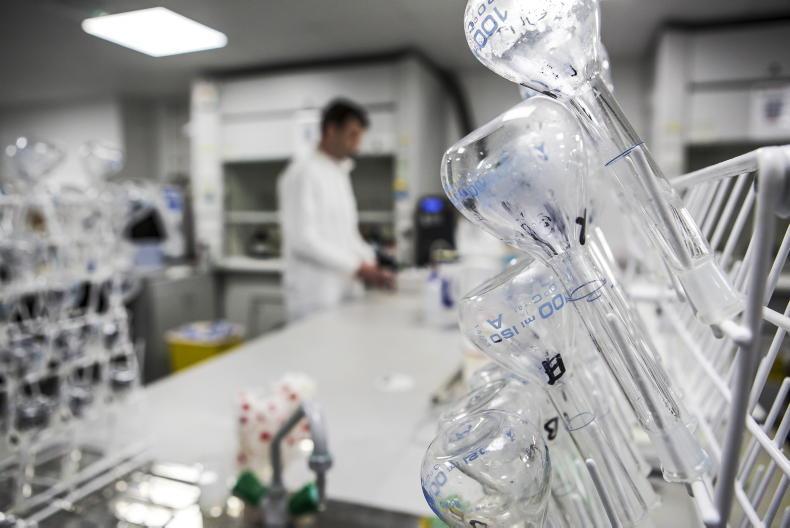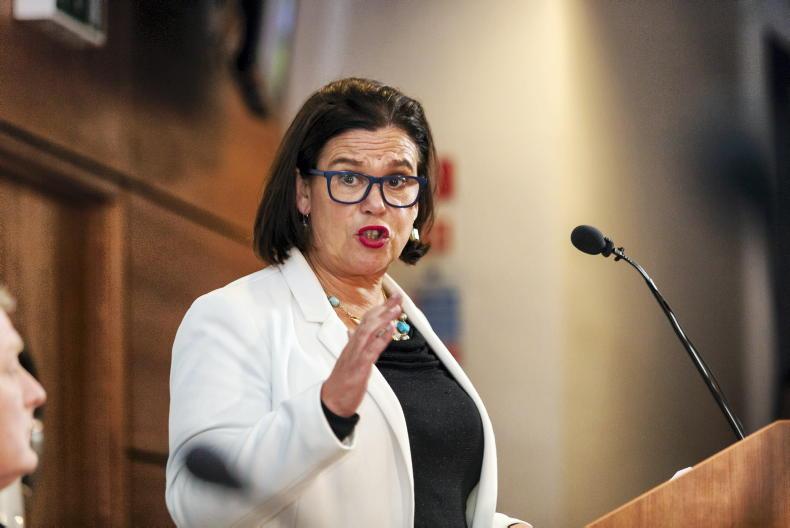If the Minister for Agriculture Michael Creed were talking one-to-one with a farmer who is angry and confused, what would he say?
“I would say that I understand his confusion, and his anger. I appreciate that for the beef sector, producing at a loss is not a place you want to be.
“I would also say that we have addressed his income situation through the provision of the €120m BEAM and BEEP schemes. Through the beef talks and the taskforce, we want to deliver as much transparency as we can so that farmers can be informed.
Pop-up organisations that block the city of Dublin do nothing to advance the interests of farmers
“The farmer then has to differentiate between the noise that he’s hearing and the facts. Unfortunately, there is a lot of noise around the beef side. Before the pickets ever started, there was a lot of misinformation, promises and populism. We’re in a critical time in terms of agricultural politics and policy. We need to have friends in broader society. Pop-up organisations that block the city of Dublin do nothing to advance the interests of farmers.
On the Government’s attitude to farming, Creed says: “There’s an absolute recognition in Government that this industry is the biggest indigenous employer in the country with a huge international reach. It carries great goodwill in terms of our international reputation, with a huge array of off-farm employment associated.
“That’s why, for instance, in terms of agriculture and climate, there was absolute support not to jeopardise the sector’s future by having knee-jerk responses in terms of culling the herd as others were calling for. We worked through a coherent strategy and that’s evidence of absolute Government commitment.”
Climate change
“I think we can meet our climate targets. I think they are onerous, but we have to do it because it is the right thing for the planet and future generations. We will also be clobbered with fines if we fall short. We can do it without cutting the national herd. It won’t be easy.”
CAP
“I don’t think it will ever be possible to please everyone, and some of the asks are competing asks. I see it as a twin-track approach. We have to support the commercial producer who is the engine of our export value. We also have to support people who are perhaps not commercial in their farming– they may be part-time but are producing much sought-after public goods such as biodiversity. It’s a land management issue as well. Finding the appropriate instruments to do that is the challenge.
“The biggest challenge we face is getting the budget to deliver what we want to do. I don’t see new reference years, although that has to carry a health warning. We are entering a transition period because the new CAP won’t be ready. I don’t think 12 months will be enough – it’s highly likely to be two years. We are looking for the maximum flexibility so we can kickstart new schemes during the transition. We want to start doing new things, for instance in terms of climate. We would like to pilot new schemes. Many people are outside of any environmental scheme since AEOS. I don’t think it’s fair to continue convergence through the transition period.”
Brexit
“The most important phase of Brexit is now beginning, where we negotiate the future trading relationship with the UK.
“The good news for Irish farmers is that nothing changes during the negotiation period, although it is concerning that the UK prime minister has said that the negotiations must be concluded by the end of the year. It just can’t be done. Whatever the outcome, it won’t be as good as what we currently have, but we will work tirelessly for the best deal possible.”









SHARING OPTIONS